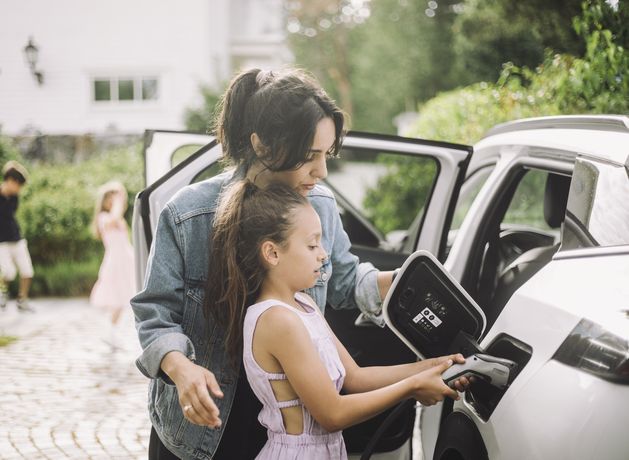Bussiness
Change motor tax, road tolls and school bus services to steer drivers from fossil fuels, climate advisers say

Move comes as latest assessments show transport emissions increased slightly last year
Recommendations include scrapping the diesel rebate scheme for certain businesses, ending the depreciation allowance for company cars that are not electric and relaxing benefit-in-kind taxes for employees who have company EVs.
The independent Climate Change Advisory Council (CCAC) said the Department of Finance must immediately review all motoring-related taxes to discourage people from buying petrol and diesel vehicles and/or incentivise them to go fully electric.
That includes vehicle registration tax, motor tax, excise duty and road tolls.
The advice comes as latest assessments show transport emissions grew slightly last year, with demand for diesel up 1pc and petrol up 7.7pc.
The recommendations are among dozens the CCAC said must be implemented if emissions are to start falling, which is vital as transport is the second-biggest emitter in Ireland after agriculture.
“Significantly reducing our transport emissions will be crucial if Ireland is to achieve its national climate objectives,” said CCAC chair Marie Donnelly. “People must be supported to make sustainable transport choices.”
Climate Change Advisory Council chairperson Marie Donnelly
Recommendations include “significant” expansion of the school bus service to try to reduce the hundreds of thousands of school runs taken daily in cars.
Workplace parking spaces are another target, particularly in the public sector, which the CCAC said should lead by example.
Parking spaces should be cut where public transport alternatives are available, the CCAC said, noting that this is one of several recommendations it made in last year’s review that have not been implemented.
Positive developments noted are the 24pc increase in public transport passenger numbers last year and the roll-out of many new local bus services.
Transport is set to overshoot the ‘carbon budget’ set for it for the 2021-2025 period
The CCAC said the average 20pc fare reduction introduced last year must be maintained in the next budget.
However, it added that public transport services must improve greatly to provide real alternatives to cars and to avoid hurting those least able to afford any rise in the costs of private motoring.
The CCAC said reallocation of road space to buses and cycling must happen faster and in all local authority areas.
All new housing must take into account the transport needs of occupants and be located and designed with public and active transport in mind, while the public EV charging network requires rapid expansion.
The recommendations come as transport is set to overshoot the “carbon budget” set for it for the 2021-2025 period and as EV sales fall behind target.
Car sales are increasing, but only 2.41pc of all cars on the road are EVs, and EV sales have dropped this year.
The CCAC has also raised concern about the 12.7pc increase in the use of jet fuel last year. Ireland used a record 1.36 billion litres of kerosene last year, all exempt from the carbon tax.
There are also concerns about the ability of the country’s ports, railways and key roads to withstand the effects of climate change, including rising sea levels, flooding and more intense rainfall.










